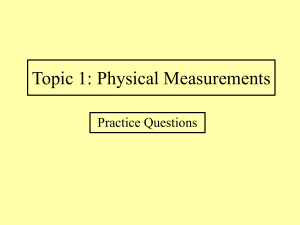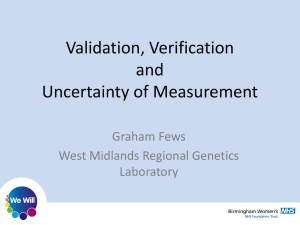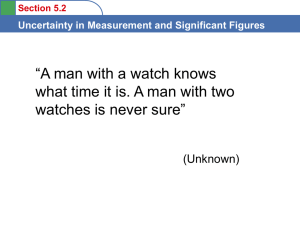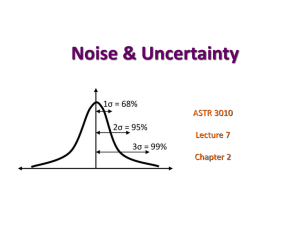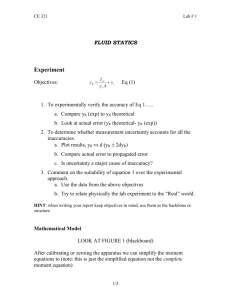Water, Water Everywhere Lab Report Guidelines
advertisement
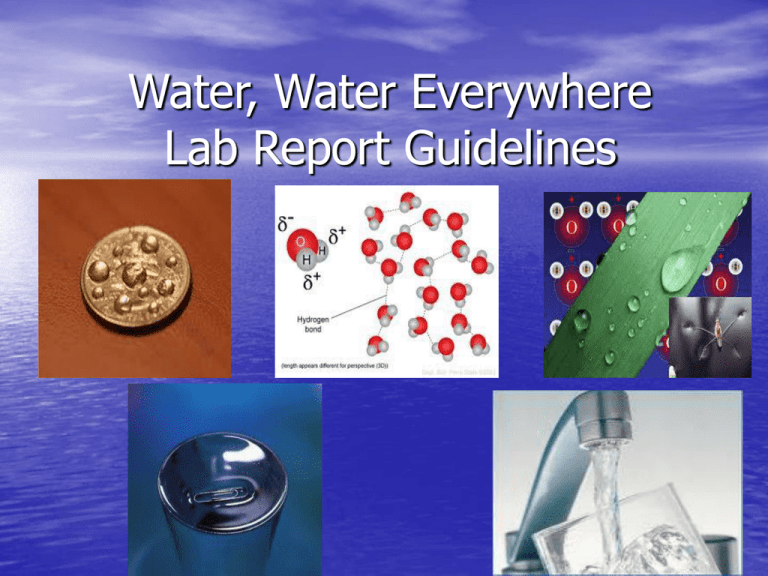
Water, Water Everywhere Lab Report Guidelines Data Tables • Provide titles for all data tables • Titles should reflect what the experiment tested • Typical two-column tables show independent • • • variable (IV) on left side (1st column) and dependent variable (DV) on right side (2nd column) Provide appropriate labels for IV and DV Include units of measurement when applicable Refer to Boot Camp Reference Guide Drawing Tables Example 1: Two Column Data Table Example 2: Multi-Column Data Table Data Tables Cont’d • Examples shown are two of many ways you can • • • • • create your data tables Tables should reflect any degrees of uncertainty associated with equipment used for measuring and collecting data The measured value and its uncertainty must always have the same number of digits after the decimal place http://physicsed.buffalostate.edu/pubs/MeasurementAnalysis/MA1_9ed.pdf) Refer to Boot Camp Reference Guide Error Analysis in Biology When determining an uncertainty from a measuring device, you need to first determine the smallest quantity that can be resolved on the device; the uncertainty in the measurement is taken to be this value (from (from http://physicsed.buffalostate.edu/pubs/MeasurementAnalysis/MA1_9ed.pdf) Data Tables Final Info –YEA! • Notation for measurements and their uncertainties takes the following form: (measured value +uncertainty) proper units, where the + is read `plus or minus‘ (from http://physicsed.buffalostate.edu/pubs/MeasurementAnalysis/MA1_9ed.pdf) • Include degree of uncertainty in data table where applicable Example 3: Table with Uncertainty The results of an investigation on the effect of light on the cyclosis of chloroplasts Data Analysis Questions • Review each activity listed in the procedure • Record answers relating to the specific activity immediately following data for that activity • Do NOT write the questions, but answer the questions in complete sentences Conclusion • Keep conclusion brief, no longer than 2 pages maximum • Refer to pages 38-42 Clegg text, which describe the properties of water • Use your data to support your conclusion • If your data does NOT support the known properties of water, evaluate weaknesses or errors that may have contributed to your data • Refer to the DCP and CE sections of the IB Internal Assessment Criteria
